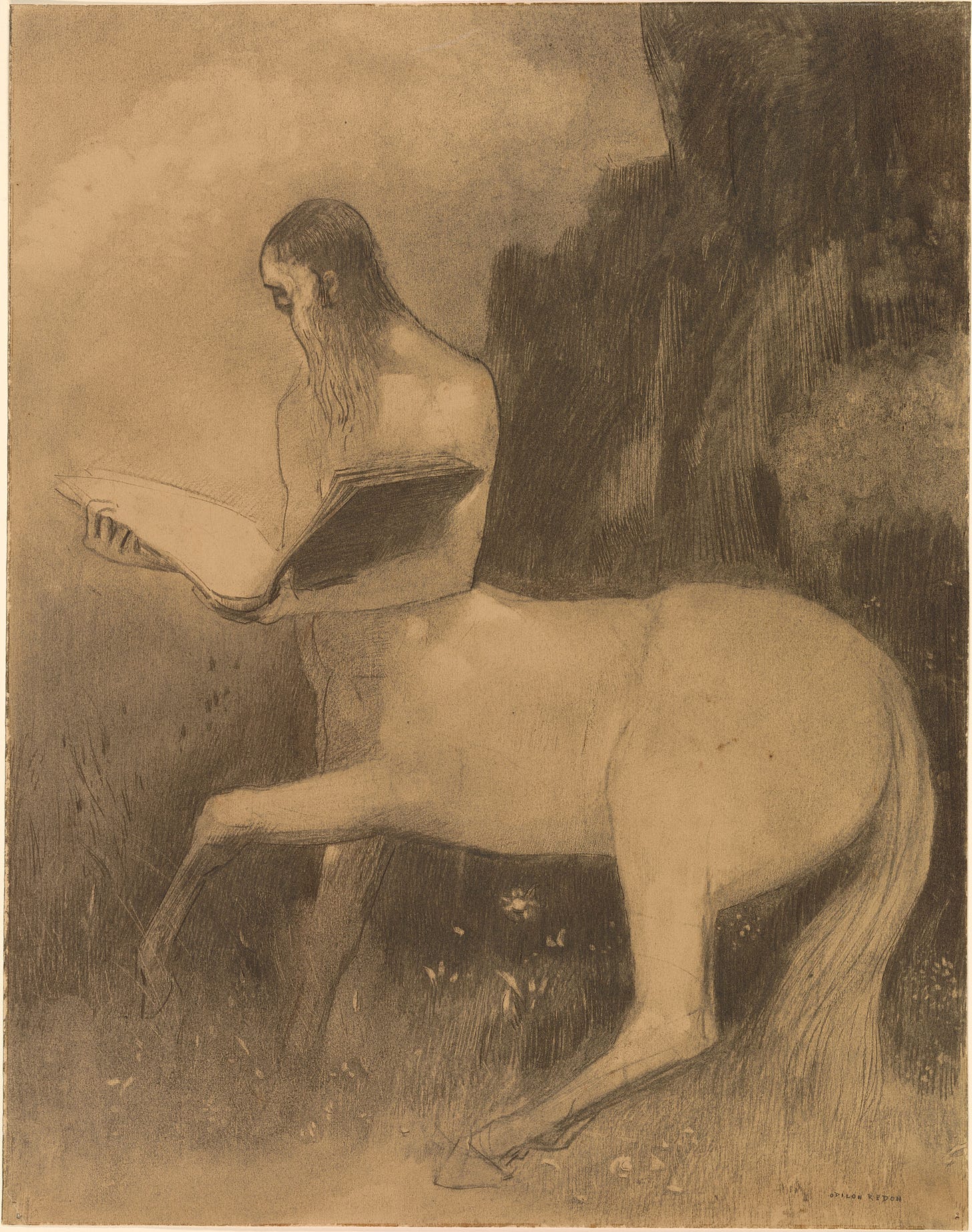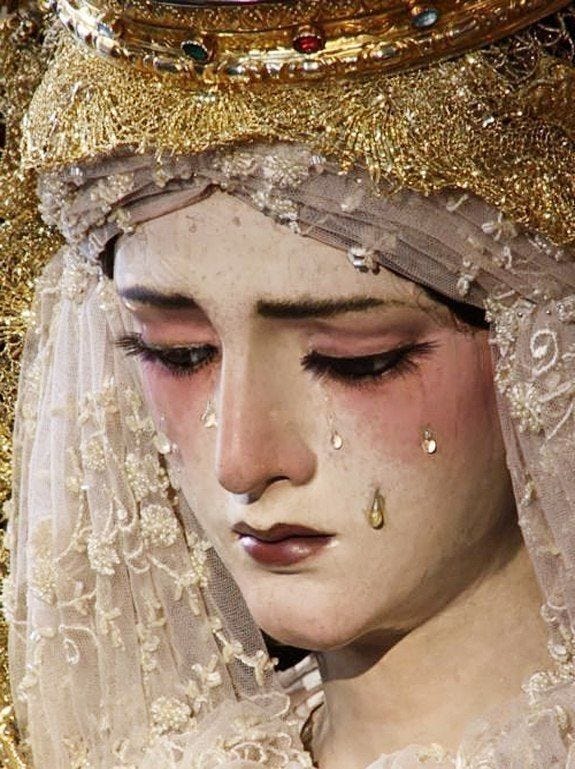This week, you’ll get a couple of posts from me. This weekend, I’ll share the tarot offering for the full moon that’s happening on Sunday in Australia. But today’s offering will begin to circle the myth of Chiron and what that may point towards around healing, pain, suffering and other murky waters.
A few newsletters ago (pre-substack), I hinted at doing live workshops latet this year/early next, and more people were curious about the Myth of Chiron than the biblical story of Job as a potential theme (tbh, I find Job more intriguing!).
In the past, I’ve offered all-day workshops tending to fairytales in the context of the book Women Who Run With The Wolves (WWRWTW) by Clarissa Pinkola Estes-Reyes. These were incredibly nourishing and illuminating explorations, and I have a desire to return to this kind of offering.
I’m more comfortable with fairy and folk tales than myths, so I’ll go slow with today’s myth. Just pulling up a few threads for now and let's see how things evolve.
Myths are rich in symbolism, multifaceted, and at times disturbing and confusing. So they can be a bit of a Pandora’s box (no Greek pun intended). Once you open up the story, all sorts of things can emerge to ruffle, unsettle and illuminate…
So today I’ll begin to stir the mythic pot and see what becomes activated. It’s got miniseries vibes … so we’ll just make a start.
With the story of Chiron, there are various versions of the story, and depending on the source, different details are changed, illuminated or omitted.
My version today is a spare retelling. As a base, I’m using a version from the book “The Mythic Journey: The meaning of myth as a guide for life” by Liz Greene and Juliet Sharman-Bourke. I found this book in an op-shop, and it's been a surprising and abundant source of ancient stories paired with gorgeous art and simple reflections.
I invite you to be actively engaged with the story: look out for any characters, symbols, themes or events that strike you as interesting. Try and be curious about symbolic associations for you, and resist literalising (that can be hard). Watch for what is being stirred in you, ask your own questions about it, even as I pose some questions too.
“I can’t do anything by trying”
But let's begin - I’ll tell it in parts - in italics - and interweave it with my reflections and questions. Please comment and respond in your way.
The story: it goes like this:
Chiron was the child of the Titan god of time, Cronus and the nymph Phylira. This was a forced union (i.e. rape) and at some point Cronus shape-shifted into a horse to either trick her or escape being caught. When Chiron was born as half-human, half-horse, he was abandoned by his mother who was disgusted by his appearance.
Chiron’s origin story is probably the most disturbing aspect of the tale for me. Sexual violence is a frequent theme in Greek myths, and probably warrants a deeper exploration than I’ll offer today; there are whole books and theses written on the topic. So, side-stepping a little, the ground of the story holds an acknowledgement of Chiron’s harsh start in life - born from violence, abandonment and rejection.
Many of us may be able to relate to a painful feeling that seems too vague or intangible to put into words. A ‘core wound’. Sometimes attachment wound is lobbed in here; it’s relevant, but also not the full picture for my sense. The core wound speaks to something we were born with or into, or our “lot in life” - and also seems to assume the sins and wounds of our parents, ancestors, even the culture - known and unknown. The stories of and around our beginnings can set our course in life - oof.
— How might you experience a hurt or core wound that you received through no ‘fault’ of your own?
— How might you carry an ancestral or cultural wound?
I am not what happens to me
However, Chiron was adopted by the god Apollo, who taught him the arts and herbal healing. He was also naturally wise and talented, and his sensitive nature and divine lineage set him apart from the other centaurs who were mortal, thuggish brutes. As such, he became a respected and beloved teacher and guide to many humans and God’s.
So despite - or perhaps because of his rough start, Chiron went on to become a valued contributor to his world. It became obvious by his nature that Chiron was different to all the other centaurs. Is it possible that his heart was tenderised by what had happened to him? He was also noticed by the God of the Sun and Healing, who mentored him in a way that enhanced his nature.
Michale Meade calls been seen and affirmed in this way a blessing or “medicine for the wound, and support for the gift”. Mm-mmm
— How might your harsh start contribute to your uniqueness?
— Who “saw you” or “sees you”? How has that blessing contributed to the cultivation or activation of something within you?
One day, Chiron’s great friend Herakles was visiting and dining in Chiron’s cave when they were beset by a tribe of savage centaurs. Herakles had recently come from slaying the monster Hydra, and had dipped his arrows in the Hydra’s poisonous blood. So when Chiron emerged from the cave, and put themself between Herakles and the marauding beasts, the lethal arrow was already in the air and hit Chiron, piercing his leg. His semi-divinity meant the poison did not kill him, but the wound never healed.
Was Chiron in the wrong place at the wrong time? This is at the heart of many tragedies. Bad timing, bad luck, an accident. None of us is immune to terrible things befalling us or those we care about. We can’t assume that being good will keep us safe from bad things happening.
— How might trying to be good or helpful, be an overcompensation to ensure safety?
My mother will often dramatically say, “Why do things always happen to us? We’re unlucky”, when things don’t go her way, usually minor or redeemable. On a recent quest to Croatia, I heard stories about my grandmother and witnessed my cousin, say the same thing “why, why …”.
In their context, it does seem to make more sense as lot of very bad shit did go down and often - even an outsider would say their llives were tragic. But my mum …. there’s much that is good and works in her world. But she carries something of the tragedy with her and remains a victim.
— What are your ideas around fate and destiny?
— What is your grievance story?
There is also something a little inflated here, where I feel Chiron misperceived his power to effect the situation.
Did he get in over his head, by trying to make peace in a situation that was beyond his mettle? I’m noting a strong critical take - but my inner dialogue went like .. “Get out of here Chiron, what do you think you are doing walking into a battle ? Let the warrior take care of things”. I was struck by his foolish attempts to save the situation.
— Can you recall a time you misjudged a situation or your skill level, and things didn’t work out?
— When does open-hearted compassion become foolish? Or martyrdom?
Chiron the Wounded Healer
From that point, Chiron remained in excruciating pain, trying various new remedies in attempts to heal the wound and ease his suffering. Nothing worked for him, though these unique remedies helped many others. Eventually, an appeal was made to Zeus to release him into death, which he granted, and so Chiron could finally enter the underworld as a mortal, and ease his suffering.
I can relate to Chiron’s desperate seeking of relief. In fact, I’ve made a profession of it!
I’ve been dabbling in various healing arts for decades. My apothecary includes psychology and all its ‘brands’ of such, as well as yoga, energy medicine, spiritual practices, mysticism and more - explored in the name of healing and tending my suffering. At the same time, I actively impart what I’ve learned to others so that they may get relief too.
We are moving into ‘wounded healer’ territory here.
This was first described by Carl Jung as an archetypal energy, where it’s the wound of the healer that gives them their gift to heal others. The wound and the healing become a dynamic that plays off each other.
Someone who benefits from the activation of this archetype does not sit in the wound and endure suffering. Nor do they think they can or should fix or cure themselves or others. To do so is to be possessed by the archetype.
By tapping into or touching the wound, getting information and energy from it, and seeing where it is pointing toward. Seeing what can be born from there.
— Where might you be stuck in your hurts, and run a ‘why me, poor me’ victim story?
— What are the gifts that may be born or emerge from your hurts?
Chiron's original and core wound perhaps helped to create the conditions and the foundations for his lifetime of wise care and healing work, but the second incurable wound activated the archetype.
More questions than answers …
I realise there is so much more to explore here, and I am certain you have more questions, as I do too. Like, we didn’t even touch on the half-man-half beast symbol, and what about his death? What of Chiron’s healing works?
My curiosity to explore the myth of Chiron is a recent thing, coming at a time when I’ve experienced some intense waves of personal emotional pain, and as I do new personal healing with a therapist. I also recognise the response as tapping into broader ancestral and cultural wounds - it’s not all about me, and so my ‘healing’ does not have to be directed just at and for me.
e.g. what if something shifts in me or you? just in telling this myth and sharing it …?
Interest has also come after I attended a “Heart of the Wounded Healer” training last year with Dr Estes-Reyes …. during which there was no mention of Chiron myth - curiously.
So, fire away with your comments and curiosities. I think I’ll pick up more threads from the myth in another post soon.
Referenced today:
Michael Meade “The Redemptive Power of the Soul” online workshop 2021
Liz Greene and Juliet Sharman-Bourke. “The Mythic Journey: The meaning of myth as a guide for life”. 1999
Clarissa Pinkola Estes-Reyes “Women Who Run With The Wolves”. 1991








